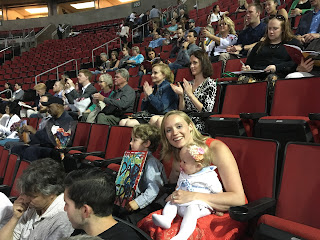We bought our first house six months ago.
It's a simple four bedroom, two bathroom, split-level home from the 1970's that has been completely remodeled and updated on the inside. It's located in a peaceful neighborhood just half a mile from my sister. To the typical guest, everything is lovely and perfect.
But take one honest look out the windows and you will see that the backyard is full of weeds and the fence is falling down.
I'm not talking about dandelions and clover kind of weeds. After we moved in I confronted: buckthorn, a forest of 5 foot high thistles, creeping charlie (ground ivy), and wild grape vines --to name a few varieties that I could identify. My goal was to remove at least half of the weeds before the first snow fall.
So I pulled and dug; yanked and hacked at the roots of those noxious weeds daily until my back ached and my hands blistered.
Day after day, I chose this activity.
Nobody was telling me to pull the weeds. I wasn't volunteering to pull weeds belonging to someone else. I wasn't being paid in exchange for my labor.
I was merely choosing not to ignore the weeds in my own backyard.
My weeds.
I named them: "mine". And then I pulled, dug, chopped, and yanked them out and observed their stories.
Some of the weeds came out easily, especially after it rained. Fresh moisture always created less resistance to change and it was a relief to successfully remove an entire plant by the roots.
Some of the weeds refused to budge. So we faced off in the mud: deep roots against my own feet firmly planted. I will likely see them again.
Most of the weeds in my yard are layered and complex. When pulling one, it frequently leads to pulling 3, 4, 5, 6 more; their roots entangled and enmeshed. Especially the wild grape vines which ironically yield no grapes.
A few of the weeds taunted me with their beauty. One in particular, with its glossy, green leaves and bright red berries. It wanted to stay, but I said no.
Many of the weeds I encountered this summer were familiar and connected. The birds all seemed to know them and love their seeds.
The weeds amazed me with the ways they had perfectly adapted for the amounts of sun, rain, and nitrogen they received.
They were thriving.
And now they are mine.
I bought them: they came with my house.
My house is part of a yard.
My yard is important to me. I get to choose what grows here.
My yard is part of a neighborhood. My choices effect those around me.
So, I honor the contributions these weeds made individually and collectively to the birds and the soil, and how they used the resources available to the best of their ability.
The weeds will always be part of my yard's story. And they are important. They served a purpose, they were more than a nuisance. But now their time is done, and they have to go. I want my yard to be a place of peace. They can grow somewhere else.
I recognize their resilience and resistance.
And I match it with my own.
To make way for new growth.
To make way for plants that give life and don't merely take it.
For that is the difference between a plant of value and a noxious weed.




















